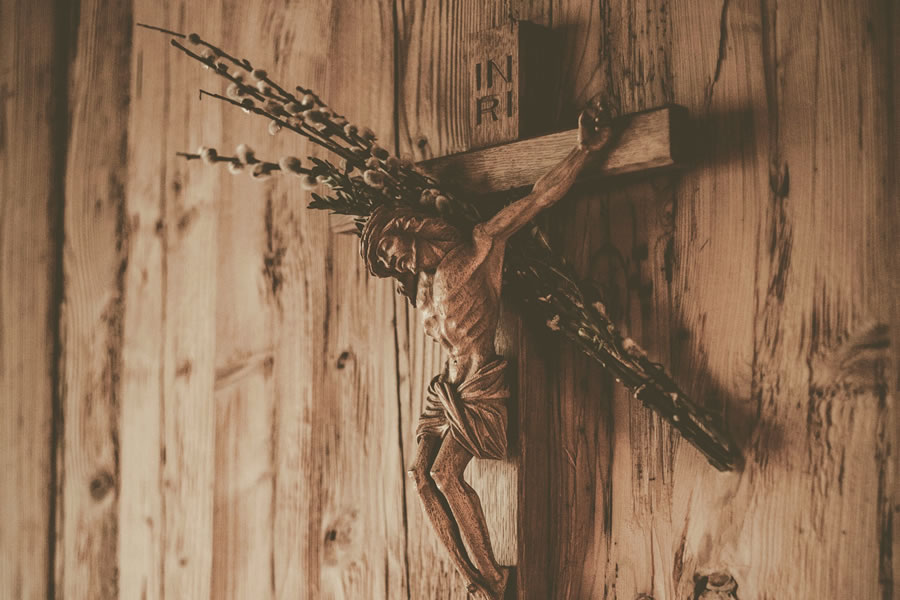
Lose ourselves to be found.
09-03-2023Weekly ReflectionRev. O. Alejandro AvelinoIn the Gospel this week, we encounter Christ on the road with the disciples. This week, too, we re-encounter Peter, being the first one to speak. Peter is the one who represents the human encounter with the divine. What do we mean? Well, if we pay attention, how many times do we put ourselves in the shoes of Peter? We, as followers of Christ, after seeing everything that he does for us and after seeing the miracle of life that we see every day. And yet, we question the plan of God.
We would instead do what we want and what feels good, and many times, we are not willing to accept the will of God. This has been expressed in the prayer of the “Our Father” as we say, “Thy will be done,” we instead want our will to be done.
The Church teaches, “The divine plan of Revelation is realized simultaneously ‘by deeds and words which are intrinsically bound up with each other’ and shed light on each other.” (CCC 53). We are called to recognize the will of God and then announce it to those around us and those close to us. To recognize the divine plan of the Lord is to accept his will. This is often to accept his will first over our own will. Peter, in the Gospel, represents our will over the will of the Father. Being able to be obedient and accept the will of the Father means that we have to lose ourselves, being able to choose the will of the Father over our feelings and wants. In accepting the will of God, we intend to offer ourselves and our wills to the Father, and at the same time, we gain a perfect relationship with he who loves us first. In losing ourselves, we gain more than ourselves, which begins by making our lives a sacrifice acceptable to that Father who gave his son for our sake.
Pierdese para ser encontrado.
En el Evangelio de esta semana encontramos a Cristo en el camino con los discípulos. También esta semana nos reencontramos con Pedro, siendo el primero en hablar. Pedro es quien representa el encuentro humano con lo divino. ¿Qué queremos decir? Bueno, si prestamos atención, ¿cuántas veces nos ponemos en el lugar de Pedro? Nosotros, como seguidores de Cristo, después de ver todo lo que él hace por nosotros y después de ver el milagro de vida que vemos cada día. Y, sin embargo, cuestionamos el plan de Dios. En cambio, haríamos lo que queremos y lo que nos hace sentir bien, y muchas veces no estamos dispuestos a aceptar la voluntad de Dios. Esto se ha expresado en la oración del “Padre Nuestro”, cuando dijimos: “Hágase tu voluntad”, en cambio queremos que se haga nuestra voluntad.
La Iglesia enseña: "El plan divino de la Revelación se realiza simultáneamente 'mediante obras y palabras que están intrínsecamente ligadas entre sí' y se iluminan mutuamente". (CCC 53). Estamos llamados a reconocer la voluntad de Dios y luego anunciarla a quienes nos rodean y a quienes están cerca de nosotros. Reconocer el plan divino del Señor es aceptar su voluntad. A menudo esto significa aceptar primero su voluntad que la nuestra. Pedro, en el Evangelio, representa nuestra voluntad sobre la voluntad del Padre. Poder ser obedientes y aceptar la voluntad del Padre significa que tenemos que perdernos a nosotros mismos, pudiendo elegir la voluntad del Padre sobre nuestros sentimientos y deseos. Al aceptar la voluntad de Dios, pretendemos ofrecernos a nosotros mismos y nuestra voluntad al Padre y, al mismo tiempo, ganamos una relación perfecta con aquel que nos ama primero. Al perdernos a nosotros mismos, ganamos más que nosotros mismos, lo cual comienza por hacer de nuestra vida un sacrificio aceptable para aquel Padre que entregó a su Hijo por nosotros.
BACK TO LIST